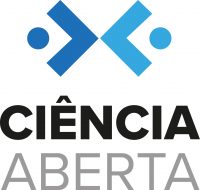Leisure, Tourism and Quality of Life in Urban Parks:
A Reflection on the Impacts of the Pandemic in the Parque Ecológico do Tietê [Brazil]
Keywords:
Leisure, tourism, urban parks, pandemic, quality of lifeAbstract
With the establishment of the health crisis caused by the Covid-19 pandemic and the forced quarantine, social rights such as health, leisure and tourism of the population were significantly impacted, while the performance of sports, cultural and leisure activities and outdoors trips was abruptly interrupted. Located in the East Zone of São Paulo, the most populous and needy region of the city, is the Parque Ecológico do Tietê, focus of this research, whose objective was to verify how its use in the aspects of leisure and tourism was affected during the pandemic. As methodological procedures, analyses were performed based on comments on TripAdvisor in two periods, as well as interviews with visitors and managers of that park. As main results, it is highlighted that there was a significant increase in interest in contact with nature and in trails, which can be explained by the long duration of the quarantine and the population's need to experience outdoor activities safely. There was no change in terms of the park's degree of importance to visitors, but they valued the activities that had been carried out until then and that were prevented by the occurrence of the pandemic. For the administrators, the biggest challenges were related to the removal of employees from the risk group to support the park's activities as well as the extra-budgetary expenses with personal protective equipment. In summary, the study reaffirms the relevance of urban parks for the population’s outdoor experiences and the deleterious effects of the pandemic that considerably affected the offer of activities related to leisure and tourism in actual society.
Downloads
Published
How to Cite
Issue
Section
License
Autores que publicam nesta revista concordam com os seguintes termos:
Os Autores mantém os direitos autorais e concedem à revista o direito de primeira publicação, com o trabalho simultaneamente licenciado sob a Creative Commons Attribution License que permitindo o compartilhamento do trabalho com reconhecimento da autoria do trabalho e publicação inicial nesta revista.
Autores têm autorização para assumir contratos adicionais separadamente, para distribuição não-exclusiva da versão do trabalho publicada nesta revista (ex.: publicar em repositório institucional ou como capítulo de livro), com reconhecimento de autoria e publicação inicial nesta revista.
Autores têm permissão e são estimulados a publicar e distribuir seu trabalho online (ex.: em repositórios institucionais ou na sua página pessoal) a qualquer ponto antes ou durante o processo editorial, já que isso pode gerar alterações produtivas, bem como aumentar o impacto e a citação do trabalho publicado (Veja O Efeito do Acesso Livre).







